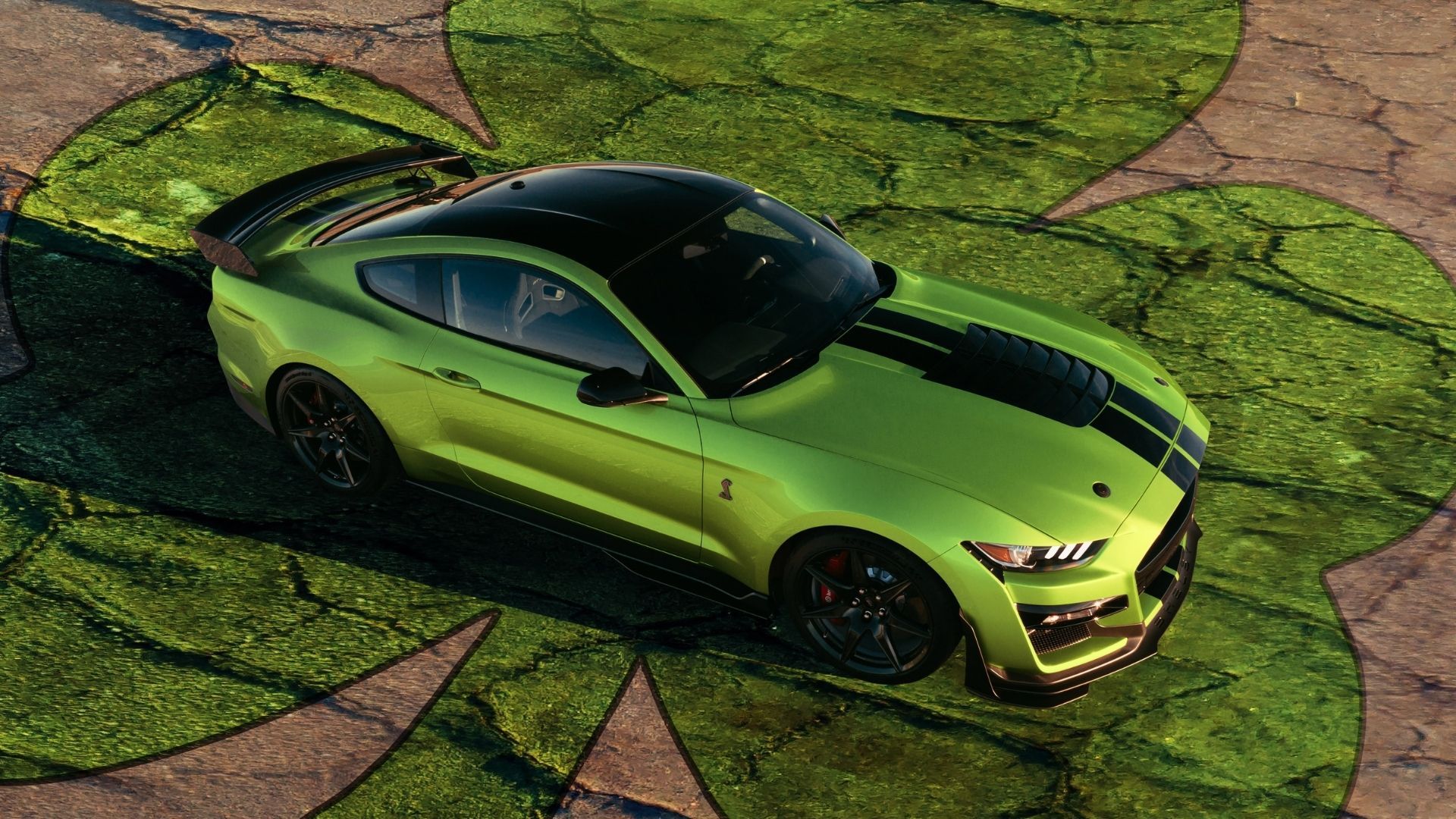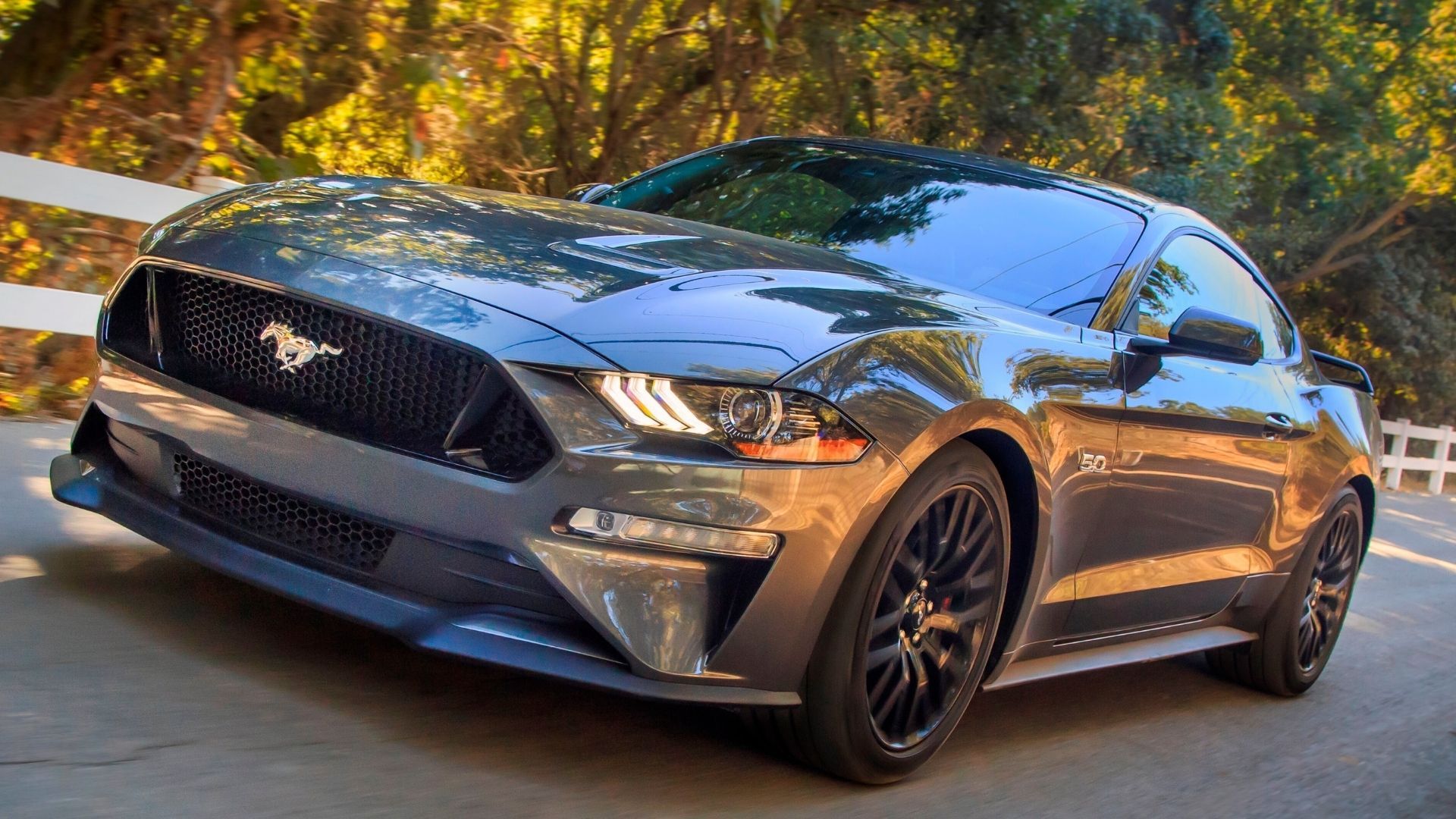And this problem goes far beyond just the pony car…
Ford will be shutting down production of the Mustang May 3-7 with a plan to resume assembling the pony car afterward. While that’s the plan, the outlook for the Mustang and other models, both from Ford and other automakers, doesn’t look exactly rosy. The reason for this production shutdown is simple: there aren’t enough semiconductor chips to power all that flashy technology in new cars.
Learn more about the upcoming Ford Mustang sedan here.
We’ve seen this problem for months now, with GM having to cease production of different vehicles, most notably the Chevy Camaro. Fiat Chrysler (now part of Stellantis) has had to shut down the assembly lines for the Dodge Charger and Challenger as well as the Chrysler 300.
This problem has affected many other automakers, ranging from Toyota to Nissan, Daimler to Porsche. Industry analysts predict the chip shortages will limit the production of cars in the near term, but thankfully the problem will go away after a while.

In the meantime, this means you can expect to have a harder time finding and paying for certain new car models. It’s the simple economic rule of supply and demand. Although, with rough economic times more people are holding onto older cars, so while supply is constrained, demand for some models is also lagging.
The shortages have caused automakers to drop some technological features from different models. For example, Stellantis announced it will be scrapping the digital speedometers on at least one Peugeot line. Ford has been selling the F-150 without the fuel management module as a way to cut back on how many semiconductor chips it uses. Porsche is axing features like an 18-way-adjustable seat for the Macan SUV as a way to conserve its chip supply.
Another strategy to deal with the shortages has been for automakers to shut down production lines for vehicles with thinner profit margins. This means many cars, like the Ford Mustang, Chevy Camaro, and Dodge Challenger, will see constrained supply. Another example is Daimler shutting down its compact car plant in Germany where 18,500 workers are employed. Instead of pumping out more Mercedes-Benz C-Class vehicles, the company is looking to put what semiconductor chips it has into more expensive model lines so profits don’t take as big of a hit.

The creation of this problem is complex and there’s some contradicting information. Some say production shutdowns at semiconductor plants because of COVID-19 has fueled the shortage. Others think it’s been the overwhelming demand for computers, gaming consoles, smartphones, smart televisions, etc. as people are spending most of their time trapped at home.
Another conjecture is that suppliers didn’t foresee automakers ramping up demand for chips so quickly after plant shutdowns and assembly line reductions last year, so they’re scrambling to ramp up production and that takes time. This comes after demand for at least some new cars has almost exploded, something few saw coming so early after not many people were looking to buy vehicles because of the pandemic last year.
Whatever the cause, this shortage isn’t making the situation of rising car prices any better. Not only are some new vehicles selling for more as a result, demand for used vehicles continues to stay strong. Hopefully by this time next year this problem will be in the rearview mirror.
Sources: CNBC, New York Times, Automotive News Europe, Reuters






